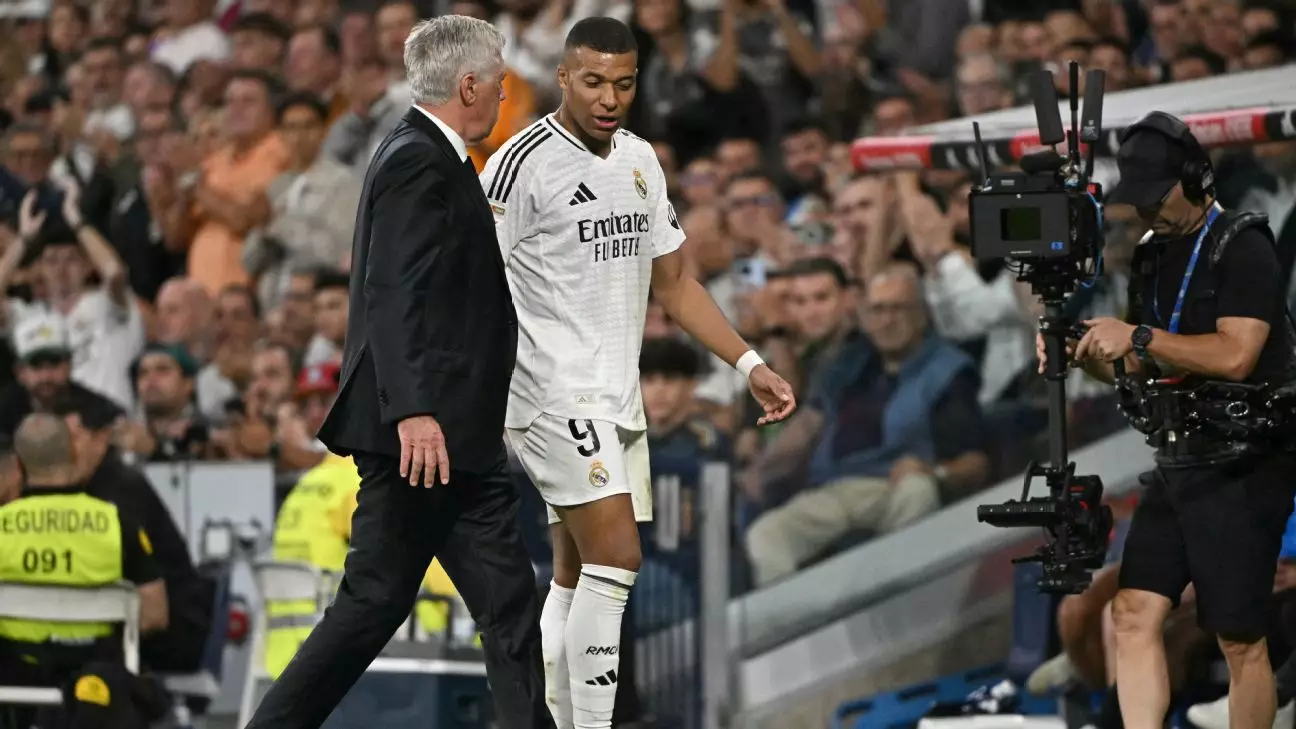In the world of professional football, controversies and dramatic narratives often take center stage, especially when it comes to officiating. The recent exchange between Real Madrid and La Liga president Javier Tebas highlights the mounting frustrations surrounding refereeing and the broader implications for the league. This article analyzes the ongoing tensions, the impact on team dynamics, and the implications of these disputes on La Liga’s integrity and fairness.
Real Madrid’s formal complaint to the Spanish Football Federation (RFEF) regarding the officiating in their recent match against Espanyol showcases their insistence on reforming a system they perceive as flawed. The specific incident that triggered this uproar was the non-disqualification of Espanyol defender Carlos Romero after a contentious challenge on superstar Kylian Mbappé, which resulted in a key injury and subsequent crucial win for Espanyol. Such incidents not only affect immediate match outcomes but also feed into a narrative that could have lasting implications on a team’s morale and performance.
Despite the gravity of their complaints, Real Madrid’s head coach Carlo Ancelotti characterized their actions not as lamentations of a victimized club but as proactive measures to foster clarity and fairness in officiating. By demanding transparency—specifically the release of audio recordings from the match officials—Madrid appears to rally for accountability within the refereeing community.
On the opposing side of the debate, Javier Tebas dismissed Madrid’s complaints as indicative of a club “losing their minds.” His portrayal of Real’s narrative as one of victimhood raises questions about accountability in La Liga. By labeling Real Madrid’s concerns as irrational, Tebas sidesteps the pressing issues being raised, which go beyond individual matches and point toward systemic flaws affecting all teams in the league.
Ancelotti’s response to this vitriolic critique reflects his desire to maintain focus amidst distractions as they prepare for crucial matches, such as the upcoming derby against Atlético Madrid. This balancing act between addressing officiating concerns and keeping players focused on performance is pivotal but tricky. Ancelotti underscores that the club seeks only to instigate reforms rather than to unduly pressure referees or evade responsibility for on-field performance.
What emerges from this controversy is a larger dialogue about the standards of refereeing in La Liga. Ancelotti’s assertion that no one, including Real Madrid, is satisfied with current officiating practices indicates a widespread discontent regarding the fairness and consistency of match officiating. It beckons the need for an introspective examination of La Liga’s refereeing protocols, training, and transparency.
The call for audio transparency and clear communication from the refereeing body could serve as a foundational step toward rebuilding trust between clubs, referees, and fans alike. By eliminating ambiguities, La Liga stands to enhance its competitive integrity, ensuring that all teams feel equally represented and safeguarded, on and off the pitch.
Adding intrigue to the situation is the role of social media, where rival clubs like Atlético Madrid openly criticize Real Madrid for allegedly leveraging their media channels to exert pressure on referees. This rivalry, deeply entrenched within La Liga’s culture, is heightened by real-time public discourse online. The social media landscape creates a platform for narratives—often polarizing—that can skew perceptions and amplify tensions among fan bases and clubs alike.
Diego Simeone, manager of Atlético Madrid, has also chimed in, suggesting that teams should concentrate on their gameplay rather than grievances towards officiating. His remarks indicate a strategic stance that prioritizes the sport’s essence—the competition itself—over the controversies that may distract from it. But as the line between clubs’ responsibilities and the accountability of officials continues to blur, the need for open dialogue points toward a resolution that may not be easily achieved.
The ongoing dispute between Real Madrid and La Liga regarding officiating complaints is more than just a series of controversial decisions; it is symptomatic of deeper issues within the league’s structure. While Carlo Ancelotti and Real Madrid strive to provoke meaningful discourse around refereeing practices, responses from others in the league, such as Javier Tebas, suggest a reluctance to engage with the root issues at play.
Ultimately, the resolution of this controversy will require concerted efforts aimed at fostering transparency, accountability, and trust across the board. If La Liga hopes to maintain its stature and integrity in the world of football, addressing these comprehensive concerns will be essential to ensure all clubs feel equitably treated within the beautiful game.
